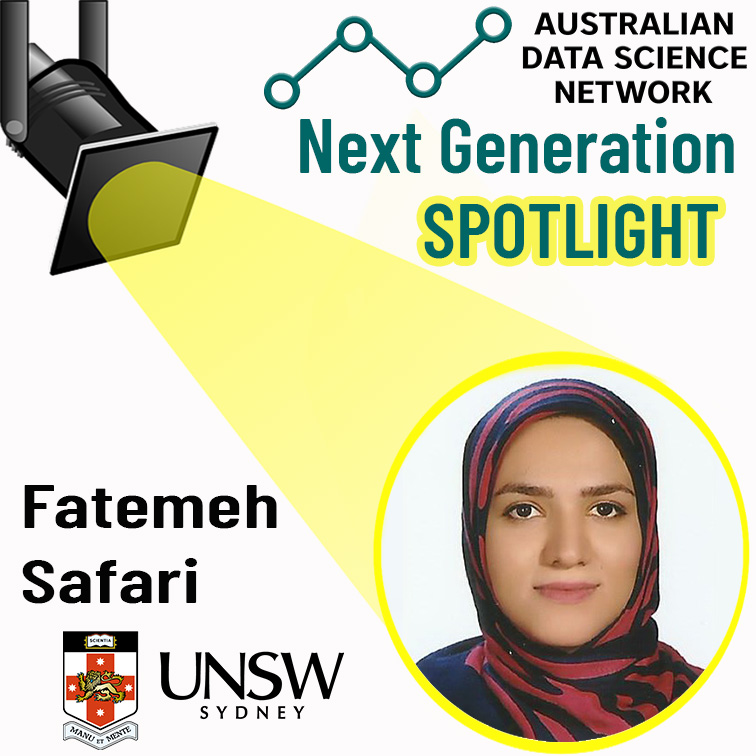“Next Gen” Spotlight: Fatemeh Safari
Tell us a bit about yourself
I am Fatemeh Safari, a PhD student in Bioinformatics at Vafaee Lab within the UNSW's School of Biotechnology & Biomolecular Sciences (BABS) and the UNSW Data Science Hub (uDaSH). My academic background lies in Medical Laboratory Sciences, and my passion for medical research began during my B.Sc., influencing much of my academic journey. Over the past nine years, I have published 12 journal papers and presented 9 conference papers. These achievements culminated in being recognized as the most outstanding student among all Medical Science students in Tehran, earning the prestigious Avicenna Prize from Tehran University of Medical Sciences.
What is your PhD in and how did you choose this project?
I’m pursuing my PhD degree under the supervision of Dr. Fatemeh Vafaee and co-supervisor Dr. Jai Tree, focusing on an ARC DP-funded project aimed at developing Machine Learning models to predict the functional outcomes of Small RNA (sRNA) and Messenger RNA (mRNA) interactions in bacteria. I chose this project due to its interdisciplinary nature, combining my background in Biology and Bioinformatics with the opportunity to delve into machine learning. The potential to uncover key regulatory mechanisms using advanced ML algorithms excites me, as it promises to significantly enhance our understanding of bacterial gene regulation. Ultimately, this research aims to contribute valuable insights to the field of molecular biology and advance the application of data science in biological research.
Any surprises or highlights from your PhD journey?
A highlight has been the interdisciplinary nature of my research. I've had the opportunity to blend computational techniques with biological insights, which has been incredibly rewarding. The process of refining our predictive models has involved a lot of trial and error, but each iteration brings us closer to uncovering the key regulatory mechanisms that govern the interactions between sRNA and mRNA. I must develop new skills in machine learning and programming to effectively analyze the large datasets we are working with. Overall, the journey has been full of surprises, but each one has contributed to my growth as a researcher.
How did you get interested in Data Science?
My interest in data science was sparked during my research journey. Working on various research projects, which involved extensive data analysis and the use of bioinformatics tools, I realized the immense potential of data-driven approaches in advancing medical research. Learning R programming and statistical analysis provided me with the skills and confidence to delve deeper into data science. This combination of molecular biology and data analysis has been incredibly fulfilling and motivated me to pursue further research in this interdisciplinary field, ultimately leading me to my current PhD project at Vafaee Lab.
What do you see as the big challenge facing the ADSN and the entire Data Science Community? Is there a big research question we should be tackling?
One of the biggest challenges facing the Australian Data Science Network (ADSN) and the entire Data Science community is effectively integrating machine learning techniques to interpret complex biological data. My research project highlights the intricate nature of biological data and the difficulty in deciphering these interactions due to their diverse regulatory mechanisms.
A significant research question we should be tackling is how to enhance the accuracy and reliability of predictive models in the biological sciences. This involves developing algorithms that can account for the nuances of biological data, such as the conserved sequences and structural features that are critical for sRNA-mRNA interactions. Furthermore, ensuring these models are interpretable is crucial so that the results can be effectively utilized by researchers and practitioners in the field.
Fun fact about yourself...
A fun fact about myself is that I enjoy exploring different cuisines and experimenting with cooking new dishes in my spare time. Cooking allows me to unwind and be creative outside of my research endeavours.
